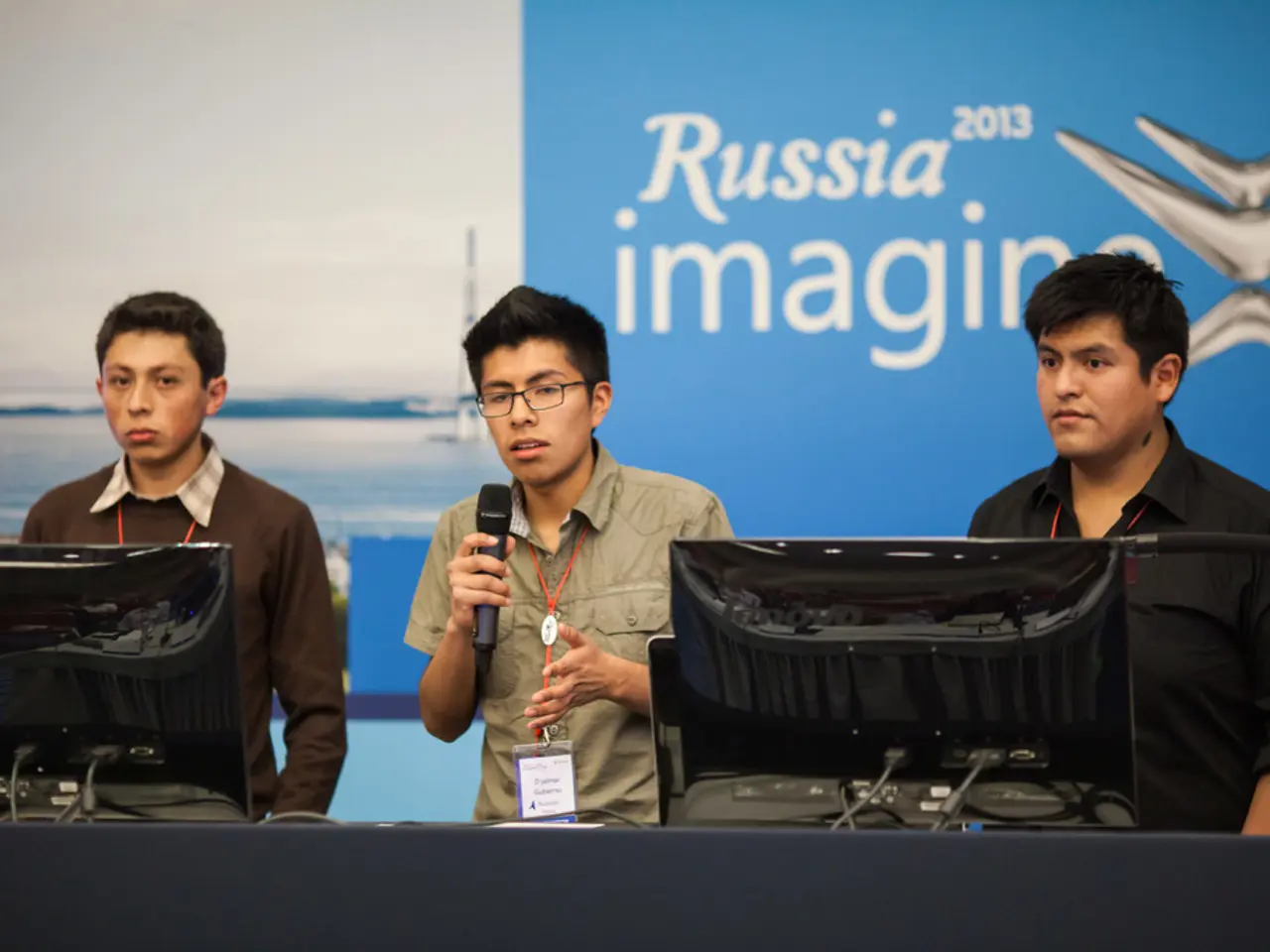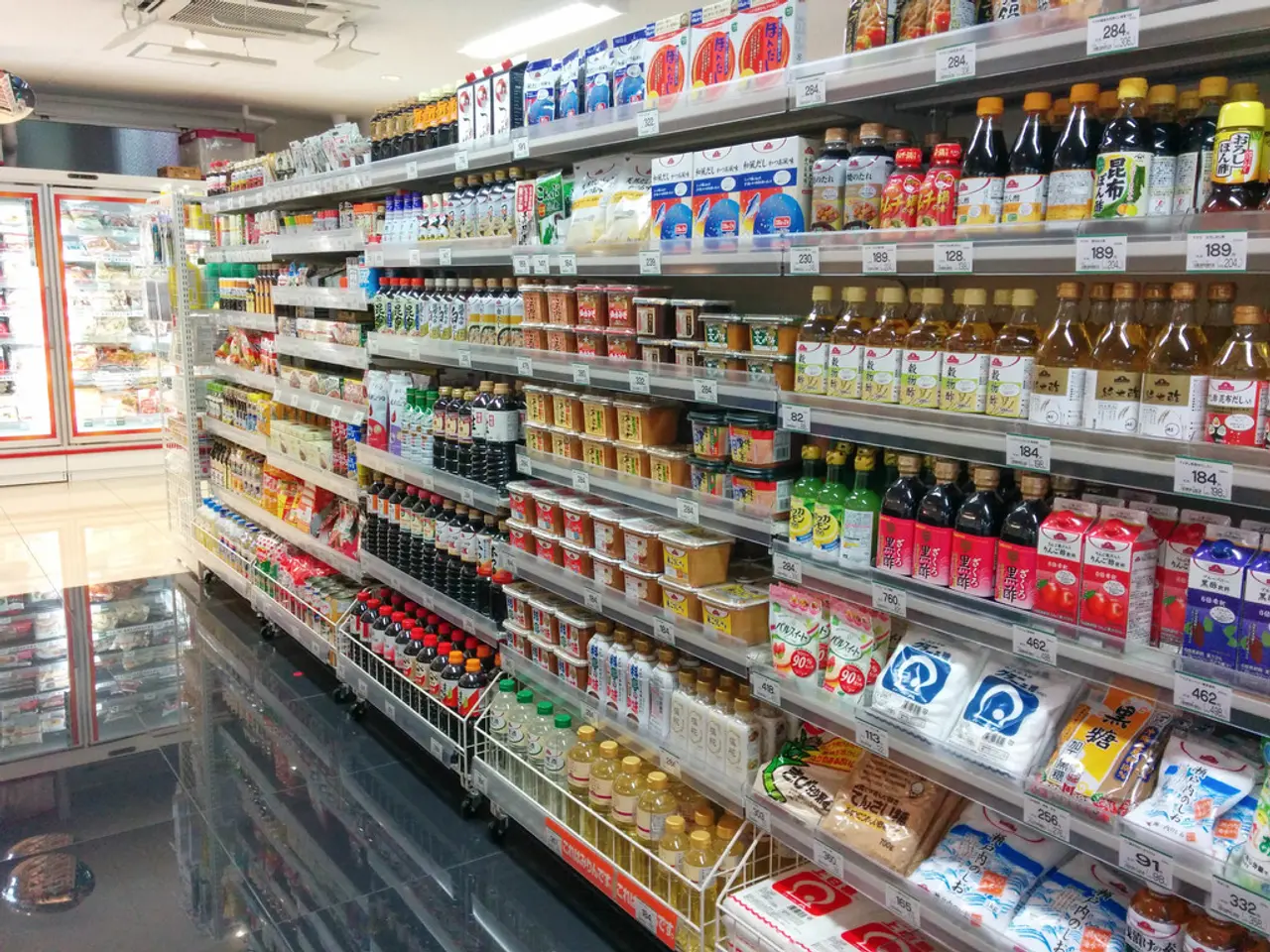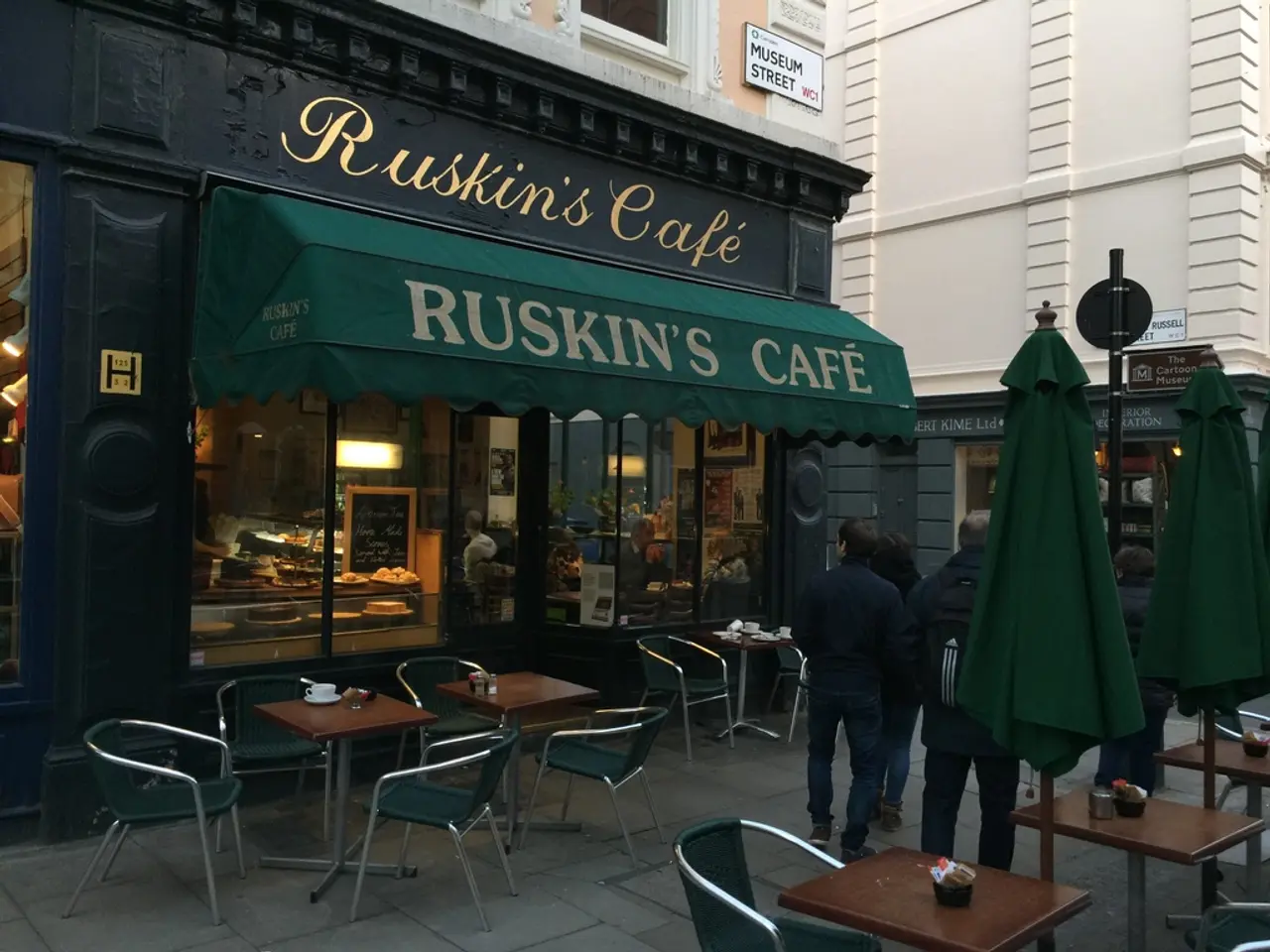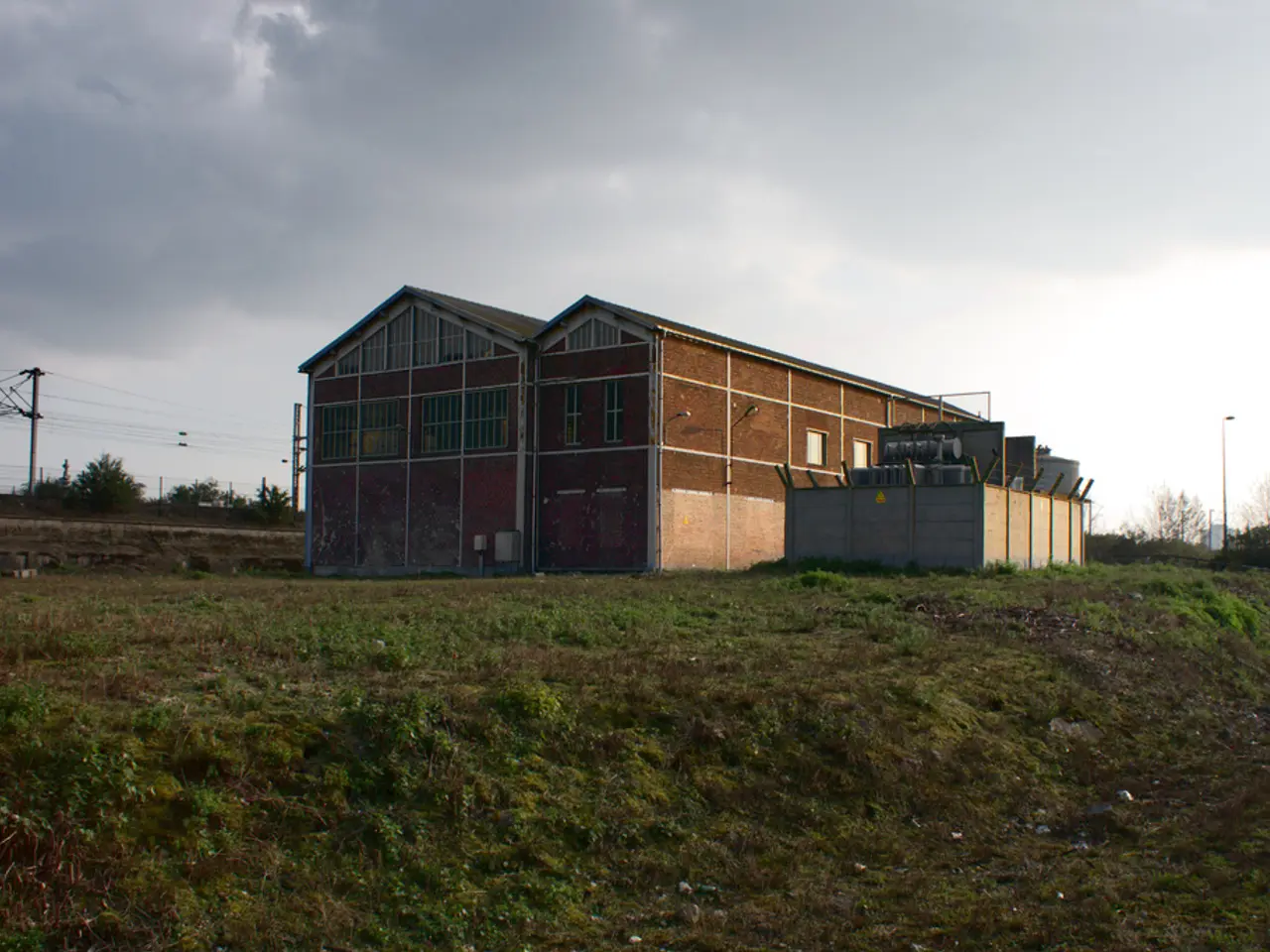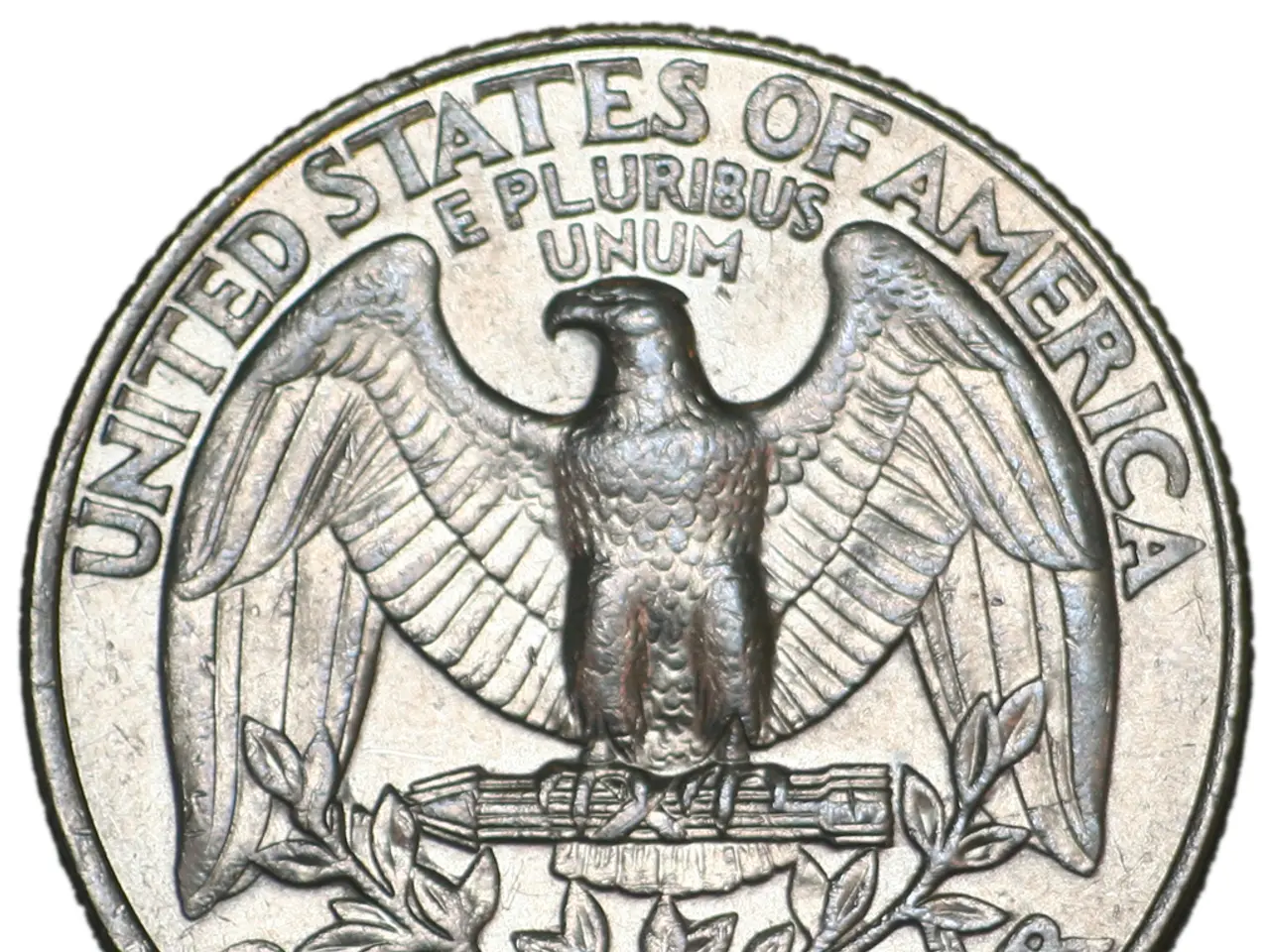Russian Central Bank faces a dilemma: balancing interest rates against inflation rates
Russia's Inflation Rate Shows Downward Trend, Central Bank Eases Monetary Policy
As of mid-2025, Russia's inflation rate is showing a clear downward trend. According to the Ministry of Economic Development, year-on-year inflation dropped from 10.3% in April 2025 to 9.9% in May 2025, and further slowed in June to around 4% monthly growth, near the Central Bank's target level for annual inflation.
Correspondingly, the Central Bank of Russia has been progressively cutting its key interest rate to support economic growth amid easing inflationary pressures. The key rate was reduced from 21% in May to 20% in June, and then sharply cut again by 2 percentage points to 18% in late July 2025.
The Bank indicated that inflationary pressures are declining faster than previously forecasted, with domestic demand growth slowing, which permits such monetary easing. Forecast-wise, the Central Bank has lowered its inflation guidance for 2025 from 7-8% down to 6-7%, reflecting expectations that inflation will continue to ease in the coming months.
The continued cautious monetary easing via interest rate cuts aims at stimulating the economy, which is cooling and faces recession risks. The Central Bank is closely monitoring inflation stability and inflation expectations to balance the trade-off between sustaining economic growth and preventing inflation from resurging.
The key rate at 18% remains historically high by global standards, indicating the Bank's cautious approach despite easing inflation. However, some experts believe that the key rate could be lowered further. For instance, Analyst Ilya Ilyin of PSB suggests it would be appropriate to lower the key rate by 200 basis points, or 2 percentage points, on Friday. Economist Viktor Tunyev suggests that the Central Bank should have reduced the key rate by up to 3 percentage points on Friday.
By 2026, Natalia Orlova, the main economist at "Alpha Bank", believes that inflationary pressure may return and the Central Bank may lower the rate to 18%. She also suggests that there are grounds for a more significant reduction to 17%, namely indicators showing a cooling economy.
Sergei Zaversky, the head of the analytical research department at the Institute for Comprehensive Strategic Research, believes that the current inflation target of 4% does not accurately reflect the realities of the Russian economy and suggests a higher target value would provide more flexibility. He also states that changing the inflation target would not destroy trust in the Central Bank to a greater extent than the prolonged period of strict monetary policy with constant delays in reaching the target level.
In summary, Russia's inflation in 2025 is trending down but remains elevated historically. The Central Bank is gradually lowering interest rates in response to easing inflation and slowing economic activity, adopting a flexible approach dependent on forthcoming inflation developments and economic conditions.
The Central Bank of Russia's repeated interest rate cuts are a strategic move aimed at finance and business growth, as they aim to stimulate the economy during a time of easing inflationary pressures. Experts, such as Ilya Ilyin and Viktor Tunyev, have suggested further reduction in the key interest rate to support business development more aggressively.
